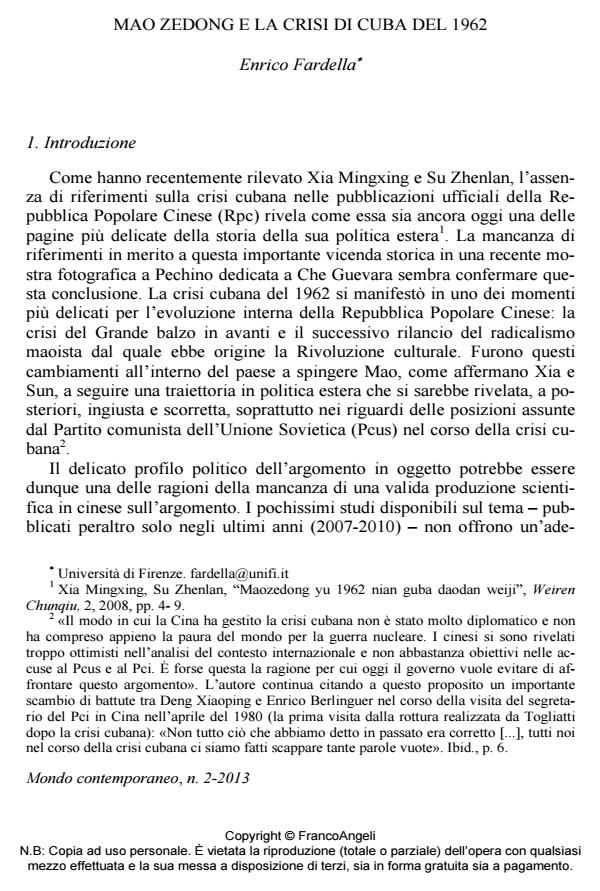Mao Zedong and the Cuban Crisis of 1962
Journal title MONDO CONTEMPORANEO
Author/s Enrico Fardella
Publishing Year 2014 Issue 2013/2
Language Italian Pages 15 P. 145-159 File size 735 KB
DOI 10.3280/MON2013-002005
DOI is like a bar code for intellectual property: to have more infomation
click here
Below, you can see the article first page
If you want to buy this article in PDF format, you can do it, following the instructions to buy download credits

FrancoAngeli is member of Publishers International Linking Association, Inc (PILA), a not-for-profit association which run the CrossRef service enabling links to and from online scholarly content.
In this article the author aims at providing a critical interpretation of Mao Zedong’s political strategy during the Cuban crisis of 1962. The close connection between the internal and external fight against revisionism established by Mao in the first half of 1962, in order to to annihilate the critics of the Great Leap Forward was strengthened by Mao’s ability to take advantage of the chances offered by the Cuban crisis. The Chinese leader’s solidarity with the Cubans, coupled with Mao’s position during the war with India, embarrassed the Soviets. Chruscev’s compromise with the Americans and the withdrawal of Soviet nuclear missiles, completed without the support of Cubans, seemed to confirm Mao’s accusation against Soviet revisionism and capitulationism. Mao managed to fully capitalize from Moscow’s strains in the Caribbean: the propaganda campaign launched within the country to support the Cuban revolution and criticize Soviet revisionism, helped Mao to reinforce his political struggle and eventually win over his opponents.
Keywords: Mao Zedong, People Republic of China, Cuban crisis 1962, Chinese foreign policy, Soviet Union, Chruscev
Enrico Fardella, Mao zedong e la crisi di Cuba del 1962 in "MONDO CONTEMPORANEO" 2/2013, pp 145-159, DOI: 10.3280/MON2013-002005